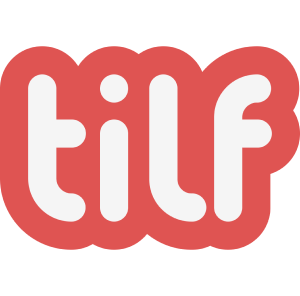
A personal statement is a key component of your university application. Writing a compelling personal statement can be challenging, but this FAQ guide covers everything you need to know—from starting strong to word limits, examples, and best practices. ✍️
What is a Personal Statement?
A personal statement is a brief essay that gives you the opportunity to demonstrate why you’re the right candidate for your chosen course. It should reflect your passion, relevant experience, and suitability for the program.
For detailed information, see Oxford’s guide on personal statements.
How Do You Write a Personal Statement?
Follow these steps for an effective personal statement:
-
- Research the Course: Understand what the course requires by researching the course description, modules, and the skills emphasised by the university. Example: If you’re applying for a psychology course that focuses on research methods, highlight experiences or skills related to research, data analysis, or critical thinking. This helps you align your statement closely with what the admissions team is looking for.
- Outline Your Experiences: Highlight relevant academic achievements, work experience, and extracurriculars. Example: If you’re applying for a medical program, you could mention volunteering at a local hospital where you assisted patients and observed healthcare professionals, demonstrating your commitment to the field and understanding of patient care.
- Structure Your Statement: Use a clear format:
-
-
-
- Introduction: Start with a strong, attention-grabbing statement that outlines your motivation and enthusiasm for the course. This sets the tone for the rest of the statement and should briefly hint at the experiences or skills you will elaborate on.
-
- Main Body: Typically consists of 2-3 paragraphs. Use these paragraphs to showcase your relevant experiences, achievements, and skills. Be specific and provide concrete examples that illustrate your suitability for the course. Structure each paragraph around a key theme or experience to ensure clarity and flow.
-
- Conclusion: Reinforce your passion for the subject and summarize why you are a strong candidate. End with a statement that reflects your future aspirations and how the course aligns with your goals.
-
-
4. Show Authenticity: Convey your genuine interest and passion for the subject. Avoid generic statements and clichés, and instead focus on your personal experiences and unique motivations. Example: Instead of saying, “I’ve always wanted to study law,” you could write, “My experience as a student council representative ignited my interest in how legal frameworks shape our daily lives.”
Tip: Check out this guide from UCAS for a step-by-step approach.
Can You Use AI to Help Write Your Personal Statement?
Using AI tools like ChatGPT can help you brainstorm ideas. However, using AI to write your entire statement verbatim is considered cheating and can result in your application being disqualified. Instead, use AI responsibly to learn how to write effectively.
Tools like Tilf.io can guide you in improving your writing skills by teaching you how to structure and refine your personal statement effectively. Instead of writing it for you, Tilf.io helps you learn the techniques and strategies to craft your own compelling statement, ensuring you stay true to your voice and avoid the pitfalls of cheating. 📝
Learn More: Check out UCAS’ guide on using AI and ChatGPT responsibly.
Example Personal Statement with Explanations
1. Introduction
Strong Version:
“There are many events in a person’s life, but only a few of them are important and define a new start in their path. To me, one of these events is the choice, which I had to make about my future education.”
Why it’s strong:
This introduction is compelling because it is reflective and sets the tone for the statement by highlighting the importance of a pivotal life decision. It engages the reader with a universal truth and connects it personally to the writer’s journey.
Weaker Version:
“I want to go to university because I need to make a decision about my education.”
Why it’s weak:
This version is vague and lacks emotional depth. It doesn’t highlight the significance of the decision or provide insight into the writer’s thought process. The language is too general and fails to capture the reader’s attention.
2. Expressing Uncertainty and Exploration
Strong Version:
“The variety of courses and majors, the good opportunities which the universities in Bulgaria and abroad offer are the reason for my doubts and questions. Where to continue my education?”
Why it’s strong:
This section effectively conveys the writer’s genuine struggle with making a choice due to the wide range of opportunities. The rhetorical question invites the reader to empathize with their uncertainty.
Weaker Version:
“There are many universities and courses to choose from, and it’s hard to decide.”
Why it’s weak:
This version is too simplistic and lacks detail. It doesn’t provide insight into the specific factors causing the uncertainty, making it less engaging and relatable.
3. Aligning Interests with University Choice
Strong Version:
“I chose to study a business-related course at your university because to me it has always been interesting and it offers good opportunities for future development and implementation.”
Why it’s strong:
This statement clearly connects the writer’s interest in business with the opportunities the university provides. It shows that the choice is deliberate and well-thought-out.
Weaker Version:
“I think business is a good field to study, so I decided to apply.”
Why it’s weak:
This version lacks conviction and specificity. It doesn’t explain why business is interesting or why the university is a good fit, making the reasoning appear shallow.
So there you have it! A comprehensive guide to writing your personal statement, from crafting that strong introduction to offering real-life examples and tips for success. 📝 Whether you’re just starting out or polishing your draft, remember that authenticity is key to standing out. Don’t forget, a well-crafted personal statement can be the difference-maker in your university application. If you’re also working on your EPQ, consider trying out Tilf.io to help you structure, refine, and get feedback on your essay! It’s a great tool that aligns with the curriculum to ensure your work is top-notch. 📚 Good luck with your applications and EPQ writing!
You’ve got this!



